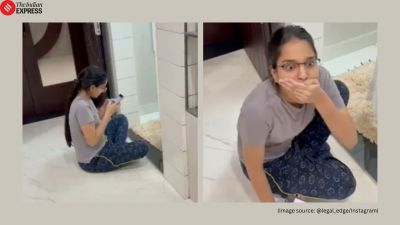THE CENTRE has sought an explanation from the University Grants Commission (UGC) on whether the Kalinga Institute of Industrial Technology (KIIT) in Odisha and Vellore Institute of Technology (VIT) in Tamil Nadu are eligible for the ‘Institution of Eminence’ (IoE) status.

According to the UGC’s regulations on the IoE scheme, the sponsoring organisation is a “charitable or a not-for-profit Society or a public Trust or a Company incorporated under Section 8 of the Companies Act, 2013” applying to upgrade an existing private institution or a new one to an IoE.
Watch | What is Institute of Eminence? Which institutes made the list?
The eligibility criterion states the collective net worth of the members of the sponsoring organisation should be Rs 3,000 crore for existing institutions and Rs 5,000 crore for new ones.
However, the applications filed by VIT and KIIT show that both have provided the market value of current assets, such as land and building, as the net worth of the sponsoring organisation.
Speaking to The Indian Express, N Gopalaswami, head of the expert committee that recommended names of institutes for IoE status, said, “As EEC (Empowered Expert Committee), we are not involved in this (checking eligibility). It was the government which sent us the names in the first instance (stating) that these (institutions) are fulfilling the (eligibility) criteria. We were given a list of institutions that fulfil the criteria and we were to make a selection out of that. Our position is very clear.”
Story continues below this ad
“If in forwarding (the list) to us, there has been some lacunae, it’s for them (UGC and Ministry) to look at it and take a view on what is to be done,” he said.
The above eligibility clause was at the source of a lot of heartburn among many private higher education institutions as it had left them out of the application process.
On September 24, 2019, at the official inauguration of Symbiosis International’s (SI) Noida campus, Vidya Yeravdekar, pro-chancellor of the deemed university, spoke on the issue from the stage, in the presence of HRD Minister Ramesh Pokhriyal, and requested him to reconsider it. Stating that SI’s Trust members are dedicated educationists and not worth Rs 3,000 crore, Yeravdekar made a pitch for tweaking the criterion to consider the Trust’s value instead of its members.
The IoE scheme, a pet project of the Prime Minister’s Office launched under the NDA-II government, is aimed at creating an enabling architecture for 10 public and 10 private institutes to emerge as world-class institutions.
Story continues below this ad
The IoEs are proposed to have greater autonomy, including on deciding the fee, and course duration and structure. Their academic collaboration with foreign institutions will also be exempt from approvals. The 10 government institutions, in addition to autonomy, will get Rs 1,000 crore each from the HRD Ministry.

 The eligibility criterion states the collective net worth of the members of the sponsoring organisation should be Rs 3,000 crore for existing institutions and Rs 5,000 crore for new ones. (File Photo)
The eligibility criterion states the collective net worth of the members of the sponsoring organisation should be Rs 3,000 crore for existing institutions and Rs 5,000 crore for new ones. (File Photo)






























